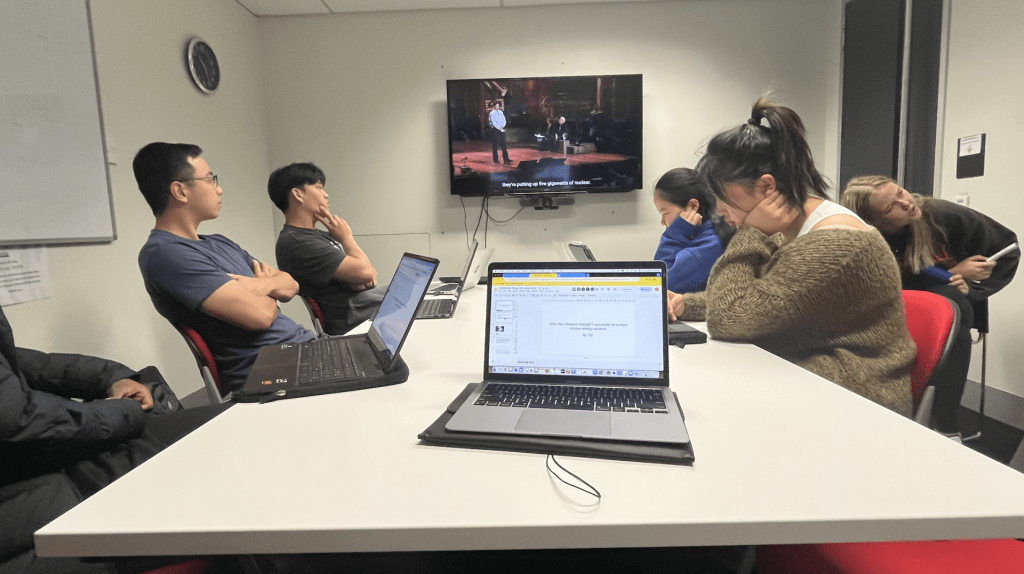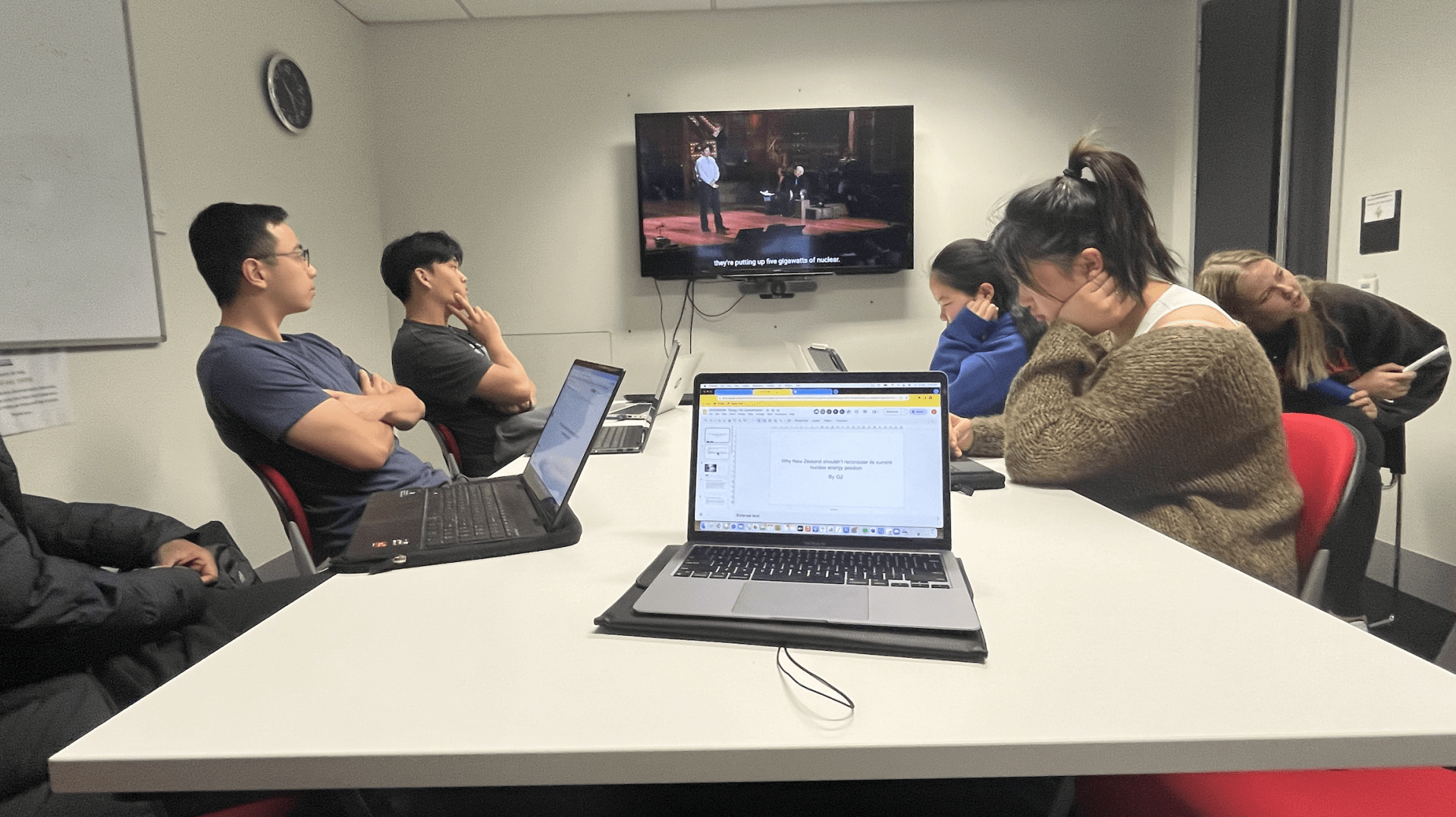Intro
The first semester of your Civil/Structural engineering journey might have feel like a daunting uphill climb with its heavy theoretical load. But let me assure you, Semester 2 is a breath of fresh air!
In this blog post, we’ll delve into what makes this semester enjoyable and why it’s worth looking forward to.
In Semester 2, you’ll be exploring a diverse range of subjects, including Geotechnical Engineering, Environmental Engineering, General Engineering Communications, and Structural Engineering.
Here’s a quick overview of the courses you’ll be taking:
- ENVENG200 – Environmental Engineering
- CIVIL200 – Geotechnical Engineering
- ENGGEN204 – Communication
- STRCTENG201 – Engineering Construction Materials + Mechanics
This semester brings a pleasant change of pace, as it eases off on the intense calculations you may encountered in Semester 1. While STRCTENG201 may still involve some challenging calculations, CIVIL200 offers a more manageable workload in this regard. What sets Semester 2 apart is the introduction to exciting new topics like Geotechnical Engineering, Environmental Engineering, and Construction Materials, providing a refreshing break from the rigorous content of Chemmat121.
ENVENG200 – Unveiling Environmental Engineering’s Rich Canvas
Let’s dive into the details of ENVENG200, a course that promises to be both eye-opening and enlightening. The beauty of this paper lies in its holistic approach to environmental engineering. Here’s what you can expect:
Course overview:
- No intimidating final exam to worry about
- Instead, three tests to gauge your understanding
- Three engaging labs/reports to apply your knowledge in practical settings
The course begins by immersing you in the world of “3-waters.” Here, you’ll explore a fascinating array of topics, from wastewater cleaning processes to drinking water purification methods. Additionally, you’ll delve into the crucial aspect of understanding how pathogens impact human health. The first lab experience will open your eyes to the intricacies of water purification, where you’ll witness the magic of coagulation, flocculation, and sedimentation methods!

The journey continues with a deep dive into Air and Noise Pollution, topics that are not only relevant but also essential in today’s world. While the course covers these subjects in a comprehensive manner, it truly shines in its exploration of noise and air pollution. One highlight of ENVENG200 is the interactive lab experience, where you’ll investigate air quality and air pollution both inside and outside the engineering building. This hands-on approach will provide valuable insights and foster a deeper understanding of these critical environmental issues.
CIVIL200: Your Gateway to Geotechnical Engineering
Now, let’s take a closer look at CIVIL200, a course that promises to be both rigorous and rewarding. This course offers a unique blend of hands-on experiences and theoretical knowledge, setting the stage for your journey into geotechnical engineering—a field that might be entirely new to many students.
Course overview:
- Three immersive labs to apply theoretical knowledge in a practical setting
- A comprehensive project divided into two parts —> one individual section and the other a group effort (randomly selected)
- A single challenging test to assess your understanding
- Exam covering all topics
If one phrase could sum up the teaching style in CIVIL200, it would be “zero tolerance.” Under the guidance of Liam, you’ll find yourself transformed into a disciplined engineer. Liam leaves no room for distractions or disruptions in class, ensuring a focused and conducive learning environment.
CIVIL200 serves as your introduction to the fascinating world of geotechnical engineering, a field that combines earth sciences and geology into a single cohesive discipline. Throughout the course, you’ll gain invaluable first-hand experience, particularly through the seepage project. This project will immerse you in the kind of work you’re likely to encounter in the industry, from dealing with extensive Excel spreadsheets to deciphering complex briefs provided by clients, in this case, your lecturer.

One of the core aspects of geotechnical engineering that you’ll explore in this course is the identification of soils and rocks. You’ll learn how to distinguish between different soil types and rock formations, a skill that’s essential for any geotechnical engineer. Additionally, you’ll dive into the fascinating world of water seepage in soils, as well as the intricate dynamics of wells and aquifers.
While CIVIL200 is undeniably content-rich, it is also incredibly enjoyable. The course strikes a balance between theory and practice, offering you the chance to apply what you’ve learned in a hands-on manner. So, while the workload may be substantial, the knowledge and skills you gain will undoubtedly pave the way for a rewarding career in geotechnical engineering. Embrace the challenges, seize the opportunities, and relish every moment of this enriching educational journey.
ENGGEN204: Developing Essential Communication Skills for Engineers
Now, let’s shift our focus to ENGGEN204, a course designed to equip you with invaluable communication skills, a crucial aspect of engineering in the real world. Unlike many courses,
Course overview:
- Instead, three engaging projects that promote practical learning
- And a couple of quizzes including attendance marks for attending your tutorial
- ENGGEN204 also offers a refreshing departure from the traditional final exam format.
ENGGEN204 is a breath of fresh air in your academic journey. Each week, you’ll participate in tutorials that present you with various tasks to tackle as part of a team which are randomly selected and stuck with you for the whole semester. What sets this course apart is that it’s not about how technically brilliant you are; rather, it’s about teaching you the essential art of communication and teamwork—skills that are paramount for success in the engineering industry.
The three projects you’ll undertake in ENGGEN204 are not just assignments; they’re dynamic learning experiences:
- Video Assignment: This project challenges you to create a video that explains a scientific principle. It’s an opportunity to flex your creative muscles while effectively conveying complex ideas.
- Group Presentation: Working collaboratively with your peers, you’ll engage in a group presentation. This exercise hones your ability to articulate ideas clearly and persuasively, a skill that is immensely valuable in engineering.
- Group Report: The final project is a group report, which allows you to demonstrate your collective problem-solving skills and your capacity to cohesively present findings and recommendations.

ENGGEN204 may be characterised as “fun” because it offers a dynamic and interactive approach to learning. It emphasises the development of soft skills that are often overlooked in traditional engineering courses. Through these engaging projects, you’ll not only enhance your ability to communicate effectively but also cultivate teamwork and collaboration.
STRCTENG201: Navigating the Structural Realm with Quincy’s Guidance
STRCTENG201, a captivating course that immerses you in the fascinating world of structural engineering diving deep into things such as buckling and methods to solve complex structural analysis problems. While it does come with its share of math-heavy challenges, this course offers a rewarding educational journey.
Course overview:
- A comprehensive final exam solely focused on Quincy’s content (brace yourself for heavy math)
- Two engaging labs that provide practical insights (concrete and transportation materials)
- A basic skills quiz to assess your foundational knowledge
STRCTENG201, though math-intensive, is an incredibly enjoyable paper that offers a well-rounded perspective on structural engineering. The course is divided into two distinct halves, each with its own unique set of challenges and rewards.
The first half of the semester is dedicated to materials, where you’ll explore the properties and applications of materials like concrete, steel, and timber. This foundational knowledge lays the groundwork for your understanding of structural engineering principles.
In the laboratory sessions, you’ll get hands-on experience with concrete and materials testing. These labs provide a practical dimension to the theoretical concepts you’ve learned, helping you connect the dots between theory and real-world application. Post-lab reports ensure that you not only conduct experiments but also effectively communicate your findings.
Below is a photo of myself and a group member mixing concrete which will be tested and sampled for our report.
Now, let’s talk about the second half of the course, where things get a bit more intense. This phase delves into advanced structural methods, and yes, it can be quite math-heavy. Quincy’s content challenges you to apply mathematical skills to analyse complex structural systems. While it may be demanding, it’s also incredibly interesting, especially if you have a love for problem-solving and a fascination with structural design.
The final exam, solely focused on Quincy’s content, serves as the ultimate test of your understanding of the mathematical intricacies of structural engineering.
Wrap up!
Semester 2 has been incredibly rewarding. Especially if you are a really passionate Civil engineering student who really enjoys hands on experience balanced with theory.

Goodluck finishing up Sem 2 of Part I !!
Peace,
Alex
